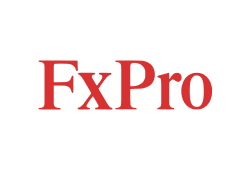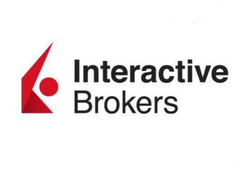Best CFD Brokers
Contracts for Difference (CFDs) have become a go-to instrument for traders seeking exposure to global financial markets without having to actually own the underlying assets.
Available to trade on in a wide range of markets, CFDs can offer flexibility and an opportunity to profit whether the market you trade on is rising or falling.
However, finding the right broker to trade through is essential, which is where we come in with our curated list.
Best CFD Brokers in February 2026
Top 5 CFD Brokers – Our Picks for 2026:
FxPro
Interactive Brokers
Pepperstone
FOREX.com
TastyFX
How We Evaluate CFD Brokers
Each brokerage on our page is reviewed and scored on the following weighted criteria:
Regulation and Safety
First and foremost, we will always prioritize and highlight brokers licensed by tier-1 regulatory bodies. CFD trading involves significant risk, especially since there are numerous brokers on the market with questionable and offshore licenses which offer little to no consumer protection to traders.
This is why we’ll highly rate those brokers which are regulated by bodies enforcing strict requirements like client fund segregation, strong compliance practices, capital adequacy and more.
We also value brokers with additional safeguards like negative balance protection and security features like 2FA and encryption technologies.
Range of Tradable CFD Assets
As CFD trading covers a wide range of financial markets, specializing in it allows traders to tailor their portfolios and diversify them in order to manage risk more efficiently, while also capitalizing on various market opportunities.
This is why we’ll show preference to those brokers which offer a greater variety of assets you can trade with.
The broader the coverage, the better the platform supports long-term portfolio building and tactical trading strategies.
Platform Features and User Experience
Both trading technology and trader expectations when it comes to it have come a long way in recent years, which is why brokers partnered with the most cutting-edge trading platforms will always be preferably rated here.
We want to see fast and responsive platforms that are stable under market stress, work well on all devices and provide traders with a wealth of advanced features and tools, as well as being easy to use and understand.
Fees, Spreads, and Commissions
Lastly, we’ll always highlight brokers with clear and transparent pricing structures.
This means that brokers with low spreads and tight margins will be favored more on this page, as well as those that won’t surprise traders with hidden fees, especially when it comes to inactivity rules and withdrawals.
A Short Guide to CFD Trading
When you trade on Contracts for Difference (CFDs), you essentially speculate on the price movements of an asset without actually owning it.
What you do instead is agreeing to exchange the difference in the asset’s price from the time you open the trade to when you close it. In practice, CFDs are mostly used for short-term trading, and are a popular choice due to their accessibility and flexibility.
Unlike with traditional stock trading, you trade with leverage, but lack ownership benefits.
When compared to options, they are more advantageous due to being simpler and having no expiry times, but are more risky due to not being able to limit losses.
And as for futures, CFDs are far more accessible for retail traders with smaller position sizes and easier rollover.
How CFDs Work
When you open a CFD trade, you can go long (buy) if you believe the asset will rise or go short (sell) if you think it will fall.
You’re only required to deposit a percentage of the trade’s full value, known as the margin, which enables leverage.
For instance, with 10:1 leverage, a $1,000 margin gives you control over a $10,000 position. While this can amplify profits, it equally increases the risk of loss.
Key Advantages
These are some of the main benefits to consider before opting to trade on CFDs:
- Leverage: Trade larger positions with a smaller capital outlay.
- Two-Way Trading: Easily speculate on rising or falling prices.
- Market Access: Trade thousands of global instruments from one platform.
- No Expiry: Hold positions as long as desired (subject to overnight fees).
- Flexible Position Sizes: Great for traders with smaller accounts.
Main Risks
We also want to highlight the biggest downsides you can encounter.
- Leverage Magnifies Losses: A small adverse move can wipe out your margin.
- Overnight Financing Charges: Holding positions beyond the trading day incurs daily interest.
- Spread and Slippage Costs: You pay a spread on every trade and may face execution at unfavorable prices in fast-moving markets.
- Margin Calls: If your account value drops too low, the broker may liquidate positions automatically.
- Counterparty Risk: Since CFDs are OTC products, you rely on your broker’s financial health and fair pricing.
Tips for Beginners
If you’re just tipping your toes in the CFD trading space, it’s best to start slowly. Many of the brokers offer demo accounts and paper trading platforms, where you can practice your skills and hone your trading strategies in a risk-free environment.
When you commit your hard-earned funds and trade in a live environment, you should always start with smaller positions, risking only the capital you can afford to lose.
It’s best that you stick to one or two markets at first as well, and not overextend yourself without a deeper understanding about each market you want to enter. The same goes for the amount of trades, as opening too many positions can often lead to higher losses and emotional fatigue.
Making just a few well-thought-out trades can be much more beneficial than making a dozen impulsive ones.
As CFDs are highly impacted by economic news like interest rate decisions, employment reports and inflation data, it is crucial to follow economic calendars and avoid trading before these big events occur, unless you actually target the event.
Last but certainly not least, always do your best to stay composed, both in times of success and periods of adversity and losses.
Even the best traders lose trades, and losses should always be considered as part of the game, so keep an analytical instead of an emotional approach here, learning from each trade and using the opportunity to iron out the details of your strategy, without falling into the trap of emotional trading which heightens the risk of further losses significantly.






